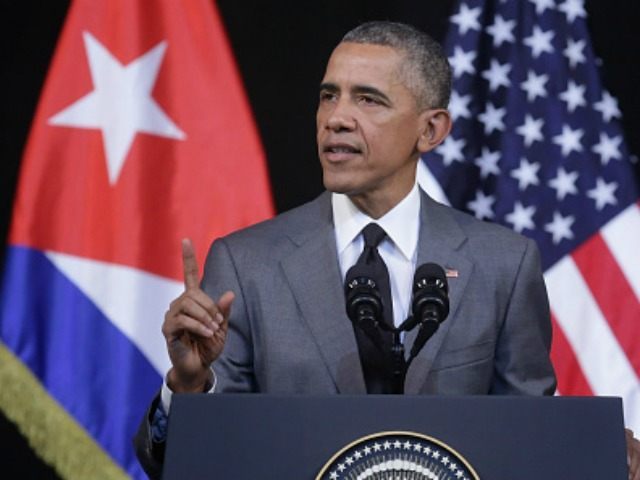President Barack Obama completed a historic address before the people of Cuba Tuesday in which he praised Cuban doctors, congratulated the communist government on its education system, and took a moment to condemn private campaign funding in the United States.
Throughout the address, the President attempted to connect with the Cuban people with multiple statements in Spanish and references to culture. The audience – a hand-picked selection of communist sympathizers, with dictator Raúl Castro front and center – applauded many of those references, perhaps a sign that they approved.
In the United States, however, appropriations of cultural memes are known as “microaggressions” – indications that the speaker is choosing to limit his understanding of an ethnic or racial group to lazy stereotypes. Common microaggressions include asking a person where they are from or making a positive statement about meritocracy.
For Latin Americans, references to their music and food are particularly common microaggressions at universities, according to the 2015 book Hispanic-Serving Institutions in American Higher Education.
Unfortunately, microaggressions are so pervasive that even President Obama failed to avoid making some in speaking to the Cuban-American people, largely ignoring the suffering of political prisoners and Cuban dissidents to speak broadly about baseball, salsa, and classic Cuban dishes no Cuban on the island can afford.
“Cultivo una rosa blanca”
President Obama began his speech with the first line of one of the most famous poems by Cuban founding father José Martí of the same name. He made an effort to explain the meaning behind the poem: to friends and enemies alike, one must sow fruitful seeds. The President’s pronunciation was lacking, however, and this microaggression is made particularly grave by President Obama’s previous attempts to cite Martí: during his December 2014 speech announcing major concessions to the Castro regime, President Obama omitted the second half of the quote, which is, “Liberty is the right that all men have to be honest, and to think and speak without hypocrisy.” Though he corrected that particular quote in this speech, his use of “cultivo una rosa blanca” in the face of a government that denies the arrest of political dissidents is hurtful.
“In Miami or Havana, you can find places to dance cha-cha-cha or the salsa and eat ropa vieja“
There are a couple of things to unpack in this particular microaggression. While Cuban artists do perform some salsa, this is a traditionally Puerto Rican genre evolved out of Cuban son. Not knowing the difference between Cuban and Puerto Rican culture is a microaggression.
President Obama posits here, also, that there are places in Havana where one may eat ropa vieja, a pulled beef entrée common in Cuban-American cuisine. While the dish is common in Miami’s many Cuban restaurants, it is a delicacy only afforded to the most well-connected Communist Party officials on the island because Cuba is running out of beef. In a feature titled “Red Gold,” Vice former editor Adam Gollner writes that, before the Cuban Revolution, “there were more cows than people” in Cuba. Today, beef is so scarce that “when someone is found cooking illegal meat, Cubans prefer suicide over going to prison.”
It may not have been President Obama’s intention to tease the Cuban people with the food the Revolution denies them, but microaggressions do not have to be intentional.
“You can listen to reggaeton or Pitbull”
Reggaeton, like salsa, is also a Puerto Rican genre of music. Pitbull is a Cuban-American reggaeton artist, sure, but – once again, why this focus on music? Latin Americans, particularly Caribbean Latinos, are very often stereotyped as frivolous dancing machines. (See this depiction of Sen. Marco Rubio on Saturday Night Live.) Cosmopolitan magazine has equated the reduction of Latin American culture to celebratory music with assuming all Latin Americans are “obnoxious,” “tan,” and “maids.”
“Si, se puede”
President Obama closed his speech with the official slogan of the United Farm Workers, a group founded by Mexican-American activists César Chávez and Dolores Huerta. He did not provide context for this phrase, popularized by his own campaign’s use of the English-language “Yes, we can.” Conflating Latin American ethnic groups is a common microaggression against Latinos.

COMMENTS
Please let us know if you're having issues with commenting.